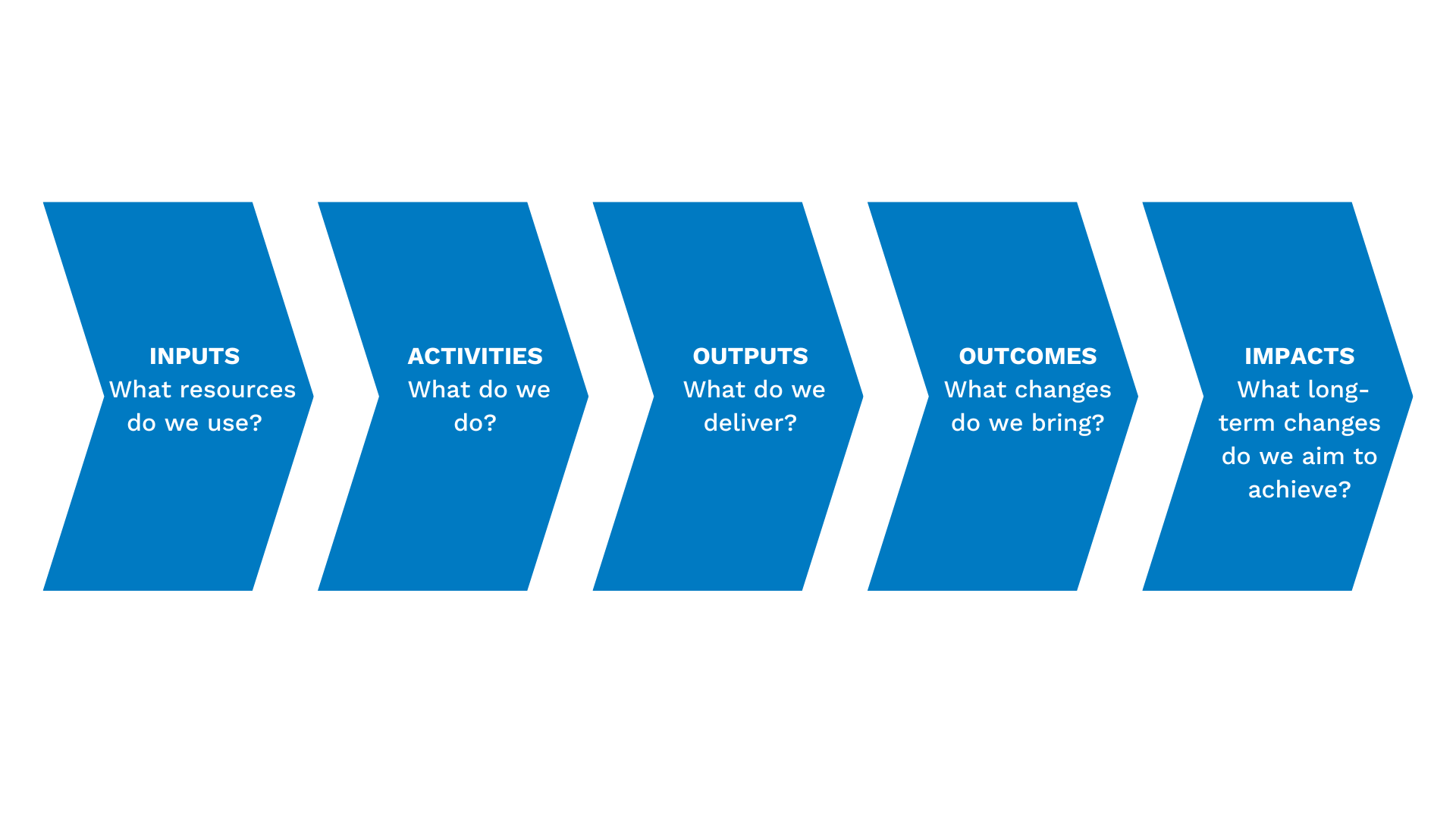Monitoring & Evaluation
On this webpage you´ll find more information on CCB´s approach to monitoring and evaluation in its work and activities.
CCB´s approach
CCB uses Result-Based Management (RBM) and Theory of Change in planning, implementing, monitoring and evaluation of its activities.
We consider Results-Based Management (RBM) as a management approach centered on achieving results, which means reaching expected impacts, outcomes, and outputs.
Our focus is not only on short-term results, but mostly on long-term sustainable achievements through a theory of change that guides how we understand results – as changes brought about by our interventions.
- Broad participation in the planning process by involving relevant actors including the target groups.
- Clear plans with defined objectives and division of responsibilities.
- Continuous risk management.
- Continuous monitoring = not just at the end of the project.
- Analysis of results during the follow-up and revision of plans if needed.
- Dissemination of results for positive influence and strategic communication.
- Continuous learning.
Terminology
In accordance with RBM, we use the following terms to plan, implement, monitor and evaluate our work:
Outputs that our activities produce and the impact that those outputs may have are built on our assumptions of whether our interventions can facilitate change. To measure our outputs, we use clear and practical indicators, and by regularly assessing risks we evaluate if we need to change our approach along the way. Our main impact is the change in behaviours/actions of our target groups.
This long term change we are aiming for is stated in the CCB Constitution (Art. 2), which is to protect the environment and natural resources of the Baltic Sea for present and future generations. Our outcomes, outputs, activities and inputs, vary depending on the circumstances that we operate in.
Example (focused on the Baltic proper harbour porpoise):
Impact: Protected environment and natural resources of the Baltic Sea for present and future generations.
Outcome: CCBs focus on the Baltic Proper harbour porpoise helped to keep the issue on the national, regional and EU agendas.
Output: 500 likes/shares across 20 social media posts on harbour porpoise protection.
Activity: 20 social media posts on harbour porpoise protection.
Input: 30 hours/1 communication officer, Facebook and Instagram CCB accounts, Canva online graphic design tool.
